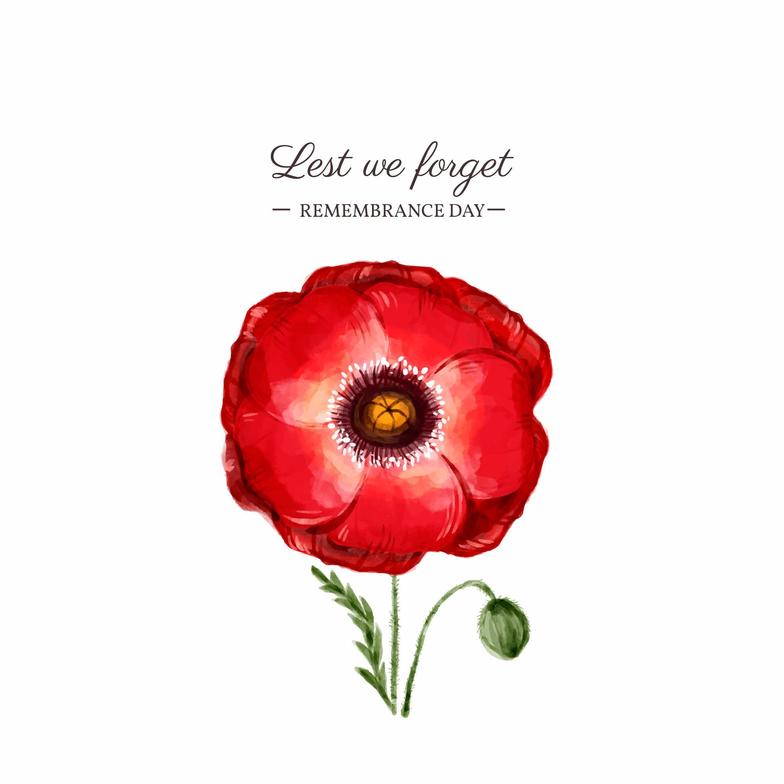
As we celebrate Remembrance Day, it’s a time to reflect on the sacrifices made by those who served in wars and conflicts, as well as the collective impact of these events on societies and individuals. This day is not just a time for historical reflection; it holds deep psychological significance. Remembering shapes our identities, strengthens communal bonds, and reinforces the values of peace and resilience.
Why Do We Remember?
At its core, Remembrance Day encourages us to honor those who served in times of conflict. The red poppy, a symbol recognized worldwide, acts as a visible marker for this remembrance, calling on us to recognize both the losses and the courage that have shaped modern peace. This day reminds us of our shared history and the freedoms we now enjoy because of those who fought and sacrificed.
But on a deeper level, the act of remembrance also allows us to reflect on the human cost of war. It brings a profound sense of respect for lives interrupted or ended prematurely and serves as a powerful reminder to strive for a peaceful world.
Psychological Significance of Collective Memory
When communities engage in collective memory—through rituals, ceremonies, or quiet reflection—they strengthen their bonds. Research in psychology shows that shared experiences, even those grounded in grief or hardship, can create solidarity. Remembrance Day is an opportunity for this: we are reminded that although our lives are individual, we are connected to something larger—a history that belongs to all of us.
Studies have shown that collective rituals can enhance a sense of belonging and identity. This is especially true for veterans and families who have experienced war personally. They find comfort in knowing that others acknowledge and honor their experiences. But it is also significant for society at large, as it bridges generational divides, allowing younger people to understand the hardships of those before them.
Remembering Trauma: A Pathway to Healing
For those who have experienced the traumas of war directly or indirectly, remembrance is not always easy. Memories of loss, grief, or violence can resurface, creating a complex mix of emotions. While it may seem painful to revisit such memories, research in trauma and healing shows that remembrance can play a crucial role in processing grief and loss.
In psychological practice, particularly in trauma therapies, we see the importance of facing and processing difficult memories to achieve healing. Veterans, for example, often carry emotional wounds long after their service has ended. Structured remembrance activities, such as Remembrance Day ceremonies, can provide a controlled environment for processing these experiences, which can help in managing post-traumatic stress symptoms.
Honouring the Past to Shape the Future
On a broader level, Remembrance Day reminds us to learn from history’s mistakes. When we remember the devastation caused by war, we are more likely to value peace and approach conflicts thoughtfully. Psychologically, this aligns with the idea of “generative reflection” where we don’t just look back to grieve or feel guilt; we look back to foster growth and positive change.
Our memories serve as guiding principles for the future. By honouring the past, we instill values of empathy, resilience, and gratitude in the next generation. For young people, who may be more removed from war, Remembrance Day can offer valuable lessons on the costs of conflict and the importance of peace.
The Role of Symbolism in Remembrance
Symbols, like the red poppy or war memorials, play a powerful role in connecting us to remembrance. From a psychological standpoint, symbols help us navigate complex emotions. The poppy, for instance, is a simple and accessible reminder of sacrifice. It evokes an emotional response, prompting reflection without needing words. These symbols serve as “emotional anchors,” creating a tangible connection to abstract concepts like bravery, sacrifice, and peace.
Embracing Remembrance Day as a Day for Mental Reflection
While Remembrance Day is a day to honor those who served, it is also a time to reflect on how history impacts our individual and collective psyche. As we remember, we participate in a powerful ritual that reinforces our values and honours the resilience of the human spirit.
Ultimately, Remembrance Day reminds us that our memories matter. They are not simply shadows of the past but essential elements that shape who we are and how we choose to move forward as individuals and communities. This November 11th, let us take a moment to remember—and to find healing, connection and hope in the act of honouring the past.
.JPEG)
.JPEG)





